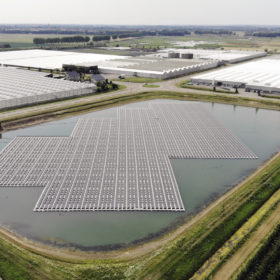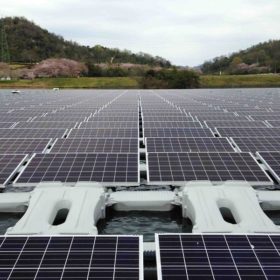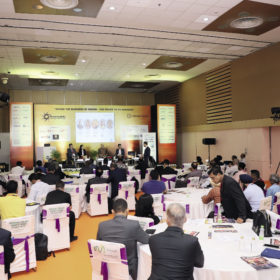Indian reservoirs could host 280 GW of floating solar
At 58 GW, the state of Maharashtra has the greatest potential to generate solar energy through floating PV or ‘floatovoltaics,’ according to a study by The Energy and Resources Institute.
Larsen & Toubro wins 20 MW floating solar project for NTPC
The grid-connected solar project shall come up at a reservoir of NTPC’s Auraiya Gas Power Plant in Uttar Pradesh. It is to be developed under Open category, allowing use of solar cells and modules of any origin.
Renewable energy: 7,592 MW commissioned in first nine months of the fiscal year
Capacity additions for the current fiscal year are set to exceed the previous accounting period’s 8,532 MW. With Rs405 billion invested in clean energy in the last fiscal year, spending in the first nine months of 2019-20 has been estimated at Rs367 billion.
SECI tenders 1.2 GW wind-solar hybrid, 4 MW floating solar plus storage
Developers have until February 25 to bid for ISTS connected wind-solar hybrid projects to be set up anywhere in India at the location of their choice. Bidding for 4 MW of grid-connected floating solar project with 2 MW/1 MWh battery energy storage system—to be set up in Andaman & Nicobar Islands—closes on February 13.
Rajasthan set to take the solar crown in 2020
Norwegian analyst Rystad Energy has predicted the stop on PV tenders in Karnataka will see Rajasthan become India’s leading solar state this year. The market research firm expects India to add only 10 GW new solar in 2020, however, and the same figure in 2021.
‘India will add 14 GW of solar this year’
The annual global outlook report for solar published by IHS Markit notes there was no real uptick in the amount of new capacity added last year, compared with the returns seen in 2018. That is likely to kill any hope India has of overtaking the U.S. as the world’s second biggest solar market in 2020.
The long read: Rising hopes for floating PV in India
The full house at the Future PV Roundtable at this year’s Renewable Energy India Expo was evidence of the buoyant expectations for the application of floating PV in the Indian market. But with the technology still at a relatively early stage in the country, many concerns are rising to the surface.
Assessing metal leaching from PV modules dumped in landfill
An Indian Institute of Technology research team analyzed around 300 studies about PV panel waste containing carcinogenic metals. The researchers said solar module recycling is not economically profitable and policy support is necessary to avoid panels being dumped in landfill.
‘The right vision is needed to unleash the potential of floating PV in India’
The technology brings environmental, economic and social benefits, says the senior VP of Ciel et Terre’s Indian business. However, the nation’s obsession with price dictating business decisions, he adds, ignores the truism that ‘in the long run, cheap products lead to more cost’.
Uttar Pradesh cabinet approves tariffs for 72 MW solar projects
The power produced by NTPC (40 MW) and Sukhbir Agro Energy (32 MW) will be purchased by Uttar Pradesh Power Corporation Limited at tariffs of Rs 3.02/KWh and Rs 3.05/KWh, respectively, for a period of 25 years.














